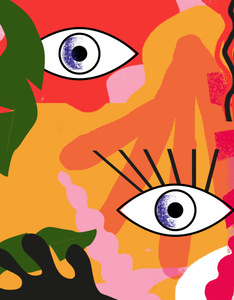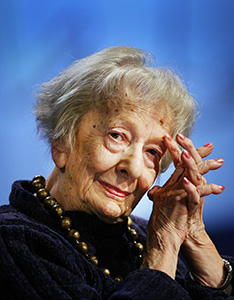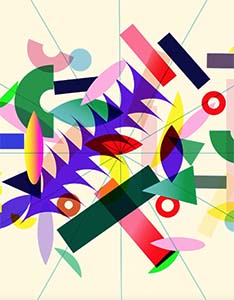OPEN CALL till 15 October 2021 - Summa Technologiae 2021 — the final series of seminars inspired by Stanisław Lem
Summa Technologiae 2021 — the final series of seminars inspired by the work of Stanisław Lem
OPEN CALL: 08 – 15 October 2021
Summa Technologiae is a project initiated in 2020 by curator Julieta Aranda and the Adam Mickiewicz Institute in cooperation with e-flux. It combines academic research, pedagogical and journalistic activities, as well as contemporary art exhibitions. Together with researchers and artists from celebrated academic institutions from around the world, we demonstrate that the pioneering ideas contained in Stanisław Lem’s Summa Technologiae, a summary of the author’s futurological reflections, transcend the boundaries of time, geography and scientific disciplines.
The final two online seminars will be held in 2021, and we welcome the participation of artists, researchers, scientists, curators, and critics from all over the world. Each seminar will focus on a selected topic, discussed in Lem’s Summa Technologiae, linking the writer's ideas to present day issues. Notes, texts, drawings, videos, and research created during the seminars will be made available on the project’s platform.
Later, an online academic research conference will take please in order to summarize all the seminars. It will be curated by Julieta Aranda, Ed Keller, and Józefina Chętko.
SEMINAR 5: CHEMOSOCIALITY
MODERATOR: Eben Kirksey
SESSION DATES: 22.10/29.10/5.11 (online seminar)
Eben Kirksey — American anthropologist specializing in science and justice, affiliated with the Alfred Deakin Institute in Melbourne, Australia. In the art world, Kirksey has become a recognized curator whose first New York exhibition, The Multispecies Salon, brought together environmental artists and hackers who affect life and the environment. At Roskilde, the annual European music festival, Kirksey collaborated with performance artists to animate insights from his latest book, Emergent Ecology, via site-specific installations. To date, Kirksey has delivered dozens of lectures and presentations at respectable international institutions, including Oxford University, Museum National d'Histoire Naturelle (Paris), Oxford University, Yale University, New York Academy of Sciences, and Stanford University.
During the seminar, we will examine a wide spectrum of chemicals that, on the one hand, safeguard life and, on the other hand, weaken organisms or multi-species worlds. Starting with critical research on toxins and biomedical drugs, we will examine how chemo-ethnographers conduct research into the economic, personal, political, and emotional relationships that emerge alongside modern chemistry.
SEMINAR 6: NATURE’S INDIFFERENCE
MODERATORS: Julieta Aranda / Mareike Diettmer
SESSION DATES: 28.10/4.11/11.11 (online seminar)
Julieta Aranda is a recognized conceptual artist, curator, lecturer, and co-founder of e-flux. She lives in Berlin and New York. She graduated in art and film from Columbia University in New York. Julieta Aranda's solo exhibitions have been presented in institutions and at art events around the world. Having been fascinated by the figure of Stanisław Lem for a number of years, Aranda is one of the originators and curators of the Futurological Congress — a platform for the exchange of ideas between curators, philosophers, artists, and scientists from around the world inspired by the ideas of the Polish futurologist.
Mareike Diettmer — Co-editor of frieze d/e magazine and content consultant of frieze. She also works for the Berlin-based mono.kultur. Over the years, Mareike has been involved in a variety of publishing and exhibition projects. Currently she is the director of the Art Stations Foundation CH/Muzeum Susch. She lives in Berlin.
Many recent social science research programs recognize the importance of understanding non-human forces in social and biological life. It remains our task to redefine age-old human problems with non-human concepts. This paper attempts to reformulate one urgent issue that is considered sensitive in ethical and political discourse, namely what do we mean by "being indifferent"?
For more information and the application form go to:


